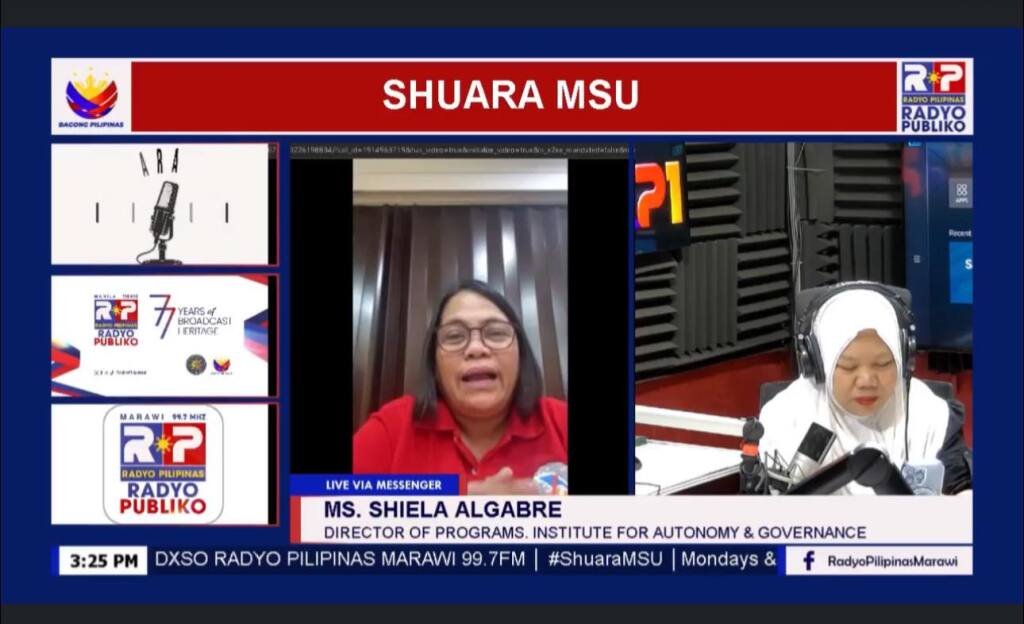Aliah P. Cali-Pascan, DPA, JD
Marawi City, Philippines – The airwaves of Radyo Pilipinas Marawi buzzed with excitement during the “Shuaramsu” program as Sheila Alagabre, Director for Programs at the Institute for Autonomy and Governance, shared her passionate vision for the upcoming Bangsamoro parliamentary elections. Her enthusiasm was palpable as she described the historic significance of the moment, highlighting the crucial role of informed and empowered voters in shaping the region’s future.
“This is a landmark moment,” Alagabre emphasized during the live interview. “We are witnessing the first-ever parliamentary elections in the Bangsamoro region, and it’s imperative that our citizens are equipped with the knowledge and understanding to make informed choices. This is about building a foundation for a strong and inclusive democracy.”
Alagabre’s work with the Institute for Autonomy and Governance focuses on empowering Bangsamoro voters through enhanced dialogue, fostering inclusive political institutions, and strengthening the rule of law. She articulated the importance of ensuring that every voice is heard and every vote counts in this pivotal election.
While acknowledging the inherent challenges of working in the development sector, Alagabre offered a message of hope and inspiration to listeners. She spoke candidly about the complexities of navigating diverse communities, addressing historical grievances, and building trust in newly formed institutions.
“Development work is not without its hurdles,” she admitted. “But it’s incredibly rewarding to witness the positive impact of our efforts. Seeing communities engage in meaningful dialogue, participate in the political process, and advocate for their rights – that’s what drives us forward.”
Alagabre demystified the often-abstract concept of “development,” breaking it down into tangible actions and outcomes. She highlighted the importance of collaborative partnerships, community engagement, and sustainable solutions. She explained that development is about empowering people to take ownership of their future and build a more just and equitable society.
Listeners were particularly inspired by Alagabre’s dedication and unwavering belief in the potential of the Bangsamoro people. Her passion for empowering voters resonated deeply, leaving many with a renewed sense of hope and optimism for the upcoming elections.
The “Shuaramsu” program served as a vital platform for Alagabre to connect with the community, share her expertise, and inspire a collective commitment to building a brighter future for the Bangsamoro region. As the region prepares for its historic parliamentary elections, the voices of individuals like Shiela Alagabre are crucial in shaping a more informed and empowered citizenry.

